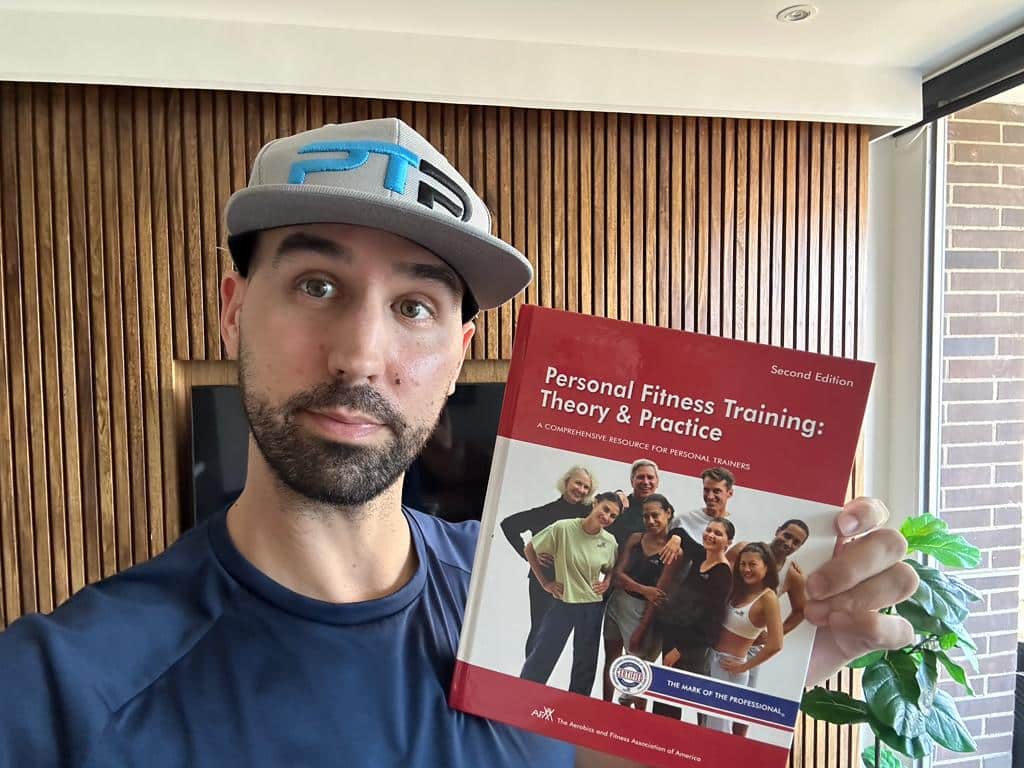
This is my review of the AFAA Personal Fitness Trainer program (AFAA-PFT) based on signing up for, studying, and passing the final AFAA exam, as well as using the AFAA certification as a fitness professional for over a decade.
I look at the following aspects of the AFAA Certified Personal Trainer:
- Organization information: AFAA pricing, packages, prerequisites
- Quality of the program and AFAA textbook
- Pros and Cons, based on these, is this the right cert for you?
- How the AFAA Personal Trainer Certification compares to other CPTs
I’ve been a certified personal trainer for over 10 years through various organizations, including the AFAA-PFT certification.
My team at PTPioneer encompasses several trainers who are certified in all the major programs out there. We combined our experience to help give you a complete review of the AFAA Personal Trainer Certificate.
If you are unsure of where to begin your personal training journey, I suggest you take the quiz to get a quick idea of which certification is best for you.
Let’s dive in.

What is the AFAA Personal Training Certification?
The AFAA Personal Training Certification is a respected personal training program that teaches the skills needed to train individuals and help them reach their fitness goals.
The AFAA textbook teaches a complete approach to the techniques needed as a personal trainer, although some information in the textbook feels a bit outdated compared to other programs.
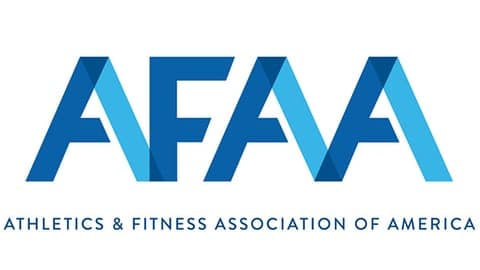
AFAA PFT General Information
- Exam cost: $199.00
- Study Material Cost: $499.00
- Prerequisites: 18+ years old, High School Diploma, First Aid, CPR, AED
- Exam Passing Score: 70%
- Exam Pass Rate: ~68%
- Average Completion Time: 3-9 months
What is AFAA? Credibility and reputation
What does AFAA stand for?
AFAA stands for the Athletics and Fitness Association of America. They are a professional fitness certification provider founded in 1983.
With a legacy spanning over four decades, they have positioned themselves as one of the best personal trainer certification providers and are known most for their group exercise instructors program.
For a comprehensive breakdown of all the top fitness programs, check out my article covering the best personal trainer certifications.
AFAA is one of the organizations credited with creating the blueprint for how to become a personal trainer.
Is AFAA NCCA-Accredited?
AFAA’s personal training certification is NCCA-accredited, meaning it stands up to the rigorous standards of the National Commission for Certifying Agencies. NCCA-accredited certifications represent the best of the best.
In general, AFAA certifications equip successful candidates as generalists in fitness.AFAA’s group fitness instructor program remains their most popular certification.
Is the AFAA Personal Training Certification worth it?
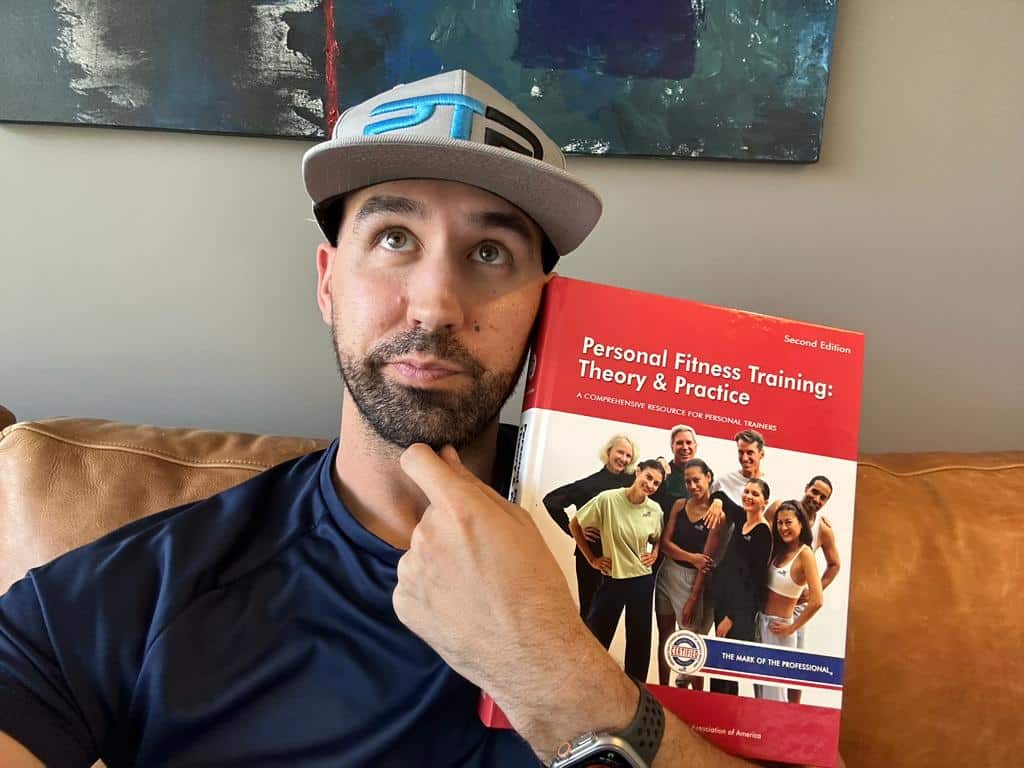
Yes, the AFAA CPT is worth it for those who want a quality training certification from a reputable organization at a low price.
While the AFAA training program does not stand out in any particular category, you can pick up the certification for only $499, plus the textbook.
This low price makes it less expensive than some of the other major organizations out there, like NASM or ISSA.
Also, AFAA and NASM are now linked because NASM owns the AFAA organization. You still get some of that NASM shine without paying their top prices.
- Reasonably priced compared to other significant certifications
- AFAA is a subsidiary of the highly regarded NASM
- Not the most accurate self-study materials for the test
- Not as highly regarded in the industry as other leading certs
- Study package options limited to a single package
AFAA Personal Training vs other top certifications
Each certification organization provides different highlights and drawbacks:
I find that ISSA has the best business skills coverage in a basic personal training certification. ISSA also provides some of the best deals for bundling multiple certifications.
NASM remains the biggest organization and carries a lot of clout in the corrective exercise field. If you want to focus a bit more on injury prevention, the NASM CPT could be your best bet.
ACE’s Personal Training Certification focuses the most on the behavioral aspects of fitness coaching. If you want to learn the newest tools on how to motivate people, I recommend ACE’s program.
Again, the AFAA does not have any specific focus, but the difference is it gives you complete skill sets in all the major aspects of personal training.
Who is AFAA CPT certification meant for?
The AFAA Personal Training Certification aims at giving individuals the skills to train general fitness clients in the gym, a studio setting, or other personal training locations.
- Those who want to train general population clients
- People who want to learn about personal training
- Training athletes
AFAA Personal Training Certification cost and packages
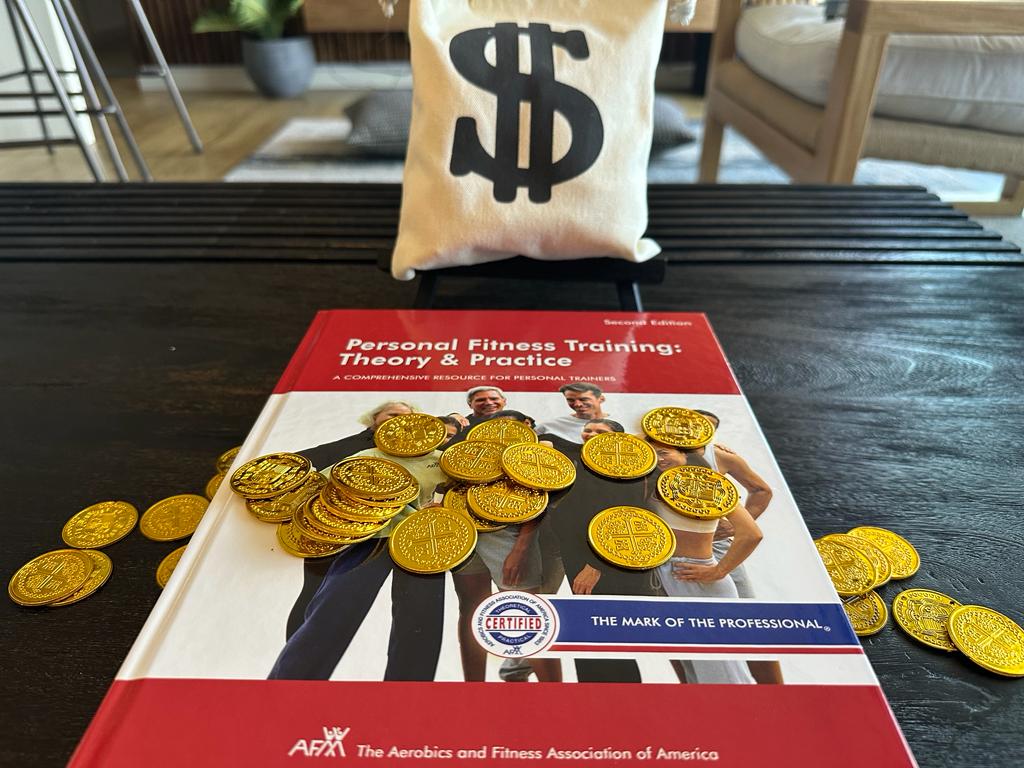
When deciding on a certification program, many factors, including what’s in the box and how much it costs.
Often, personal trainer certifications will present several options for their suite of course materials.
However, AFAA’s PFT cert only comes with one option.
This package provides access to a downloadable AFAA study guide PDF, video lectures, practice tests, and the exam.
This price doesn’t include the course textbook, Personal Fitness Training: Theory and Practice, which means you pay for that in addition to the AFAA certification cost.
I found the AFAA online certification video lectures helpful, informative, and immersive, but I feel that dynamic content such as video or audio lectures has limitations.
Exclusive PTP CPT Offers |
||
|---|---|---|
Most Popular Cert | Best Online NCCA Cert | Best Study Materials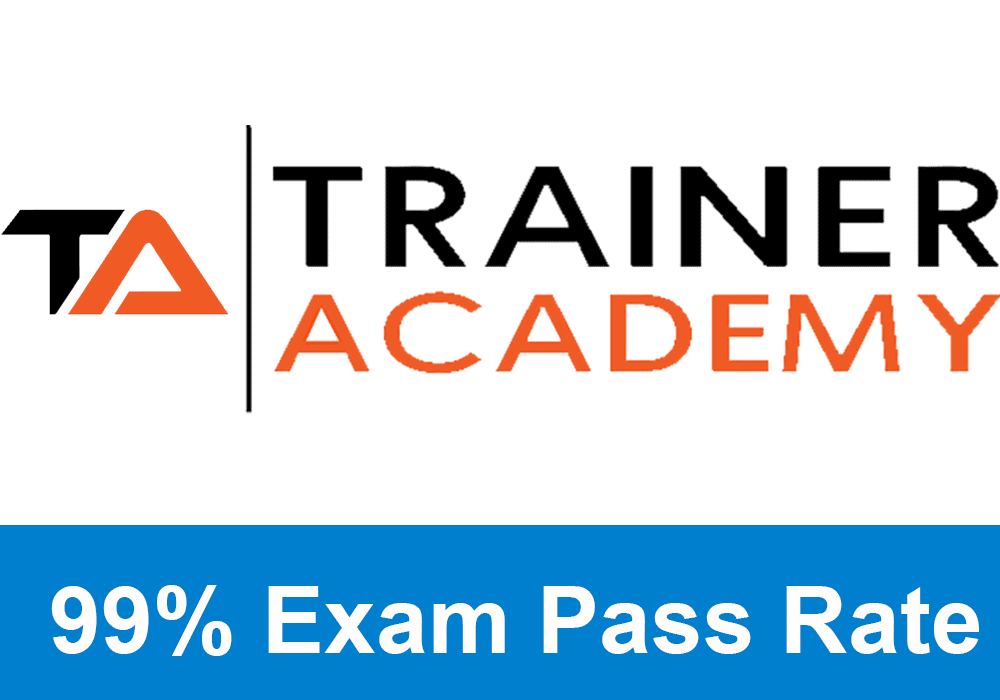 |
Gold Standard Cert | A Good Option | Best CPT for you?  |
For instance, unlike a textbook, where you can easily bookmark and have static references to your work, a video lecture can’t be paused and referred to.
Sure, you can pause, but that’s it.
With a textbook, you can highlight everything important: topics, bookmark relevant chapters and pages, and have fixed reference points for information.
Now let’s look at pricing.
The Personal Fitness Trainer certification costs $499.00, with the exam included.
Additionally, with the AFAA personal training book, you’ll be paying that plus an extra $79.00.
That’s just under $600.00 for an entire CPT certification, so despite the textbook not being included, AFAA still works out to be one of the cheapest personal trainer certifications.
A quick Google search also shows some good used options for the textbook that cost anywhere from around $20-40, which is the route I would go.
Remember to check out AFAA’s official price listings for current deals.
AFAA Personal Training Certification review – content coverage
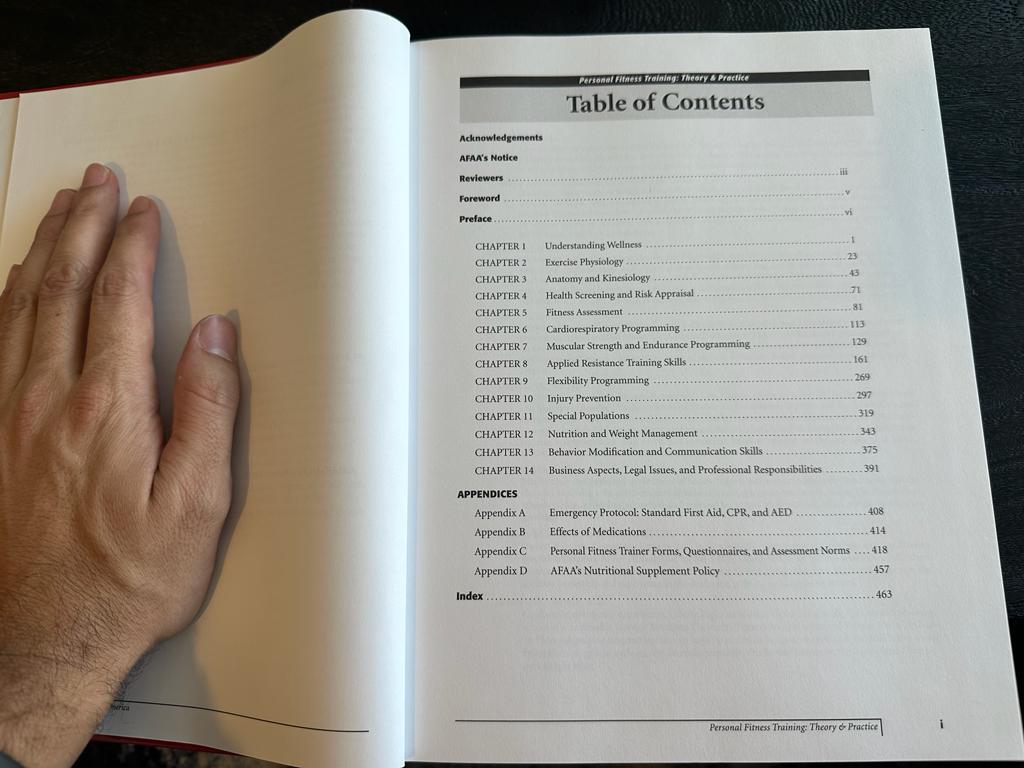
As mentioned, AFAA offers a generalist approach to fitness instruction for certified personal trainers, granting them quick entry into the fitness industry.
That means AFAA CPT’s curriculum is fundamentals-focused and avoids picking something of a niche like corrective exercise, which NASM employs with its OPT model.
To become a successful personal trainer, you want to have elements of your brand and service that stand out from the saturated market.
One way to do this comes from specializing in a particular area versus the whole fitness field.
This allows you to grow into the habit of defining yourself apart from peers and competitors.
Therefore, AFAA might fall out of favor during this review due to its relative lack of differentiating factors.
However, if you’re looking for a solid foundational entry through an online personal trainer certification or some solid cheap CEU credits, in this case, AFAA might be the champion we never knew we had.
To properly determine where AFAA sits in this debate, let’s look at how its curriculum handles the critical concepts of professional fitness training.
The AFAA textbook covers the information you need to know in 14 chapters:
- Understanding Wellness
- Exercise Physiology
- Anatomy and Kinesiology
- Health Screening and Risk Appraisal
- Fitness Assessment
- Cardiorespiratory Programming
- Muscular Strength and Endurance Programming
- Applied Resistance Training Skills
- Flexibility Programming
- Injury Prevention
- Special Populations
- Nutrition and Weight Management
- Behavior Modification and Communication Skills
- Business Aspects, Legal Issues, and Professional Responsibilities
To give you a good idea of how valuable and relevant an AFAA PFT certification would be for your career and personal trainer salary objectives, I’ve taken the time to delve into the curriculum to provide insight into the knowledge and practical skills you’ll be exposed to.
That way, you can determine if the syllabus’s scope of practice and area of focus suits your goals as a soon-to-be personal trainer.
Exercise Science Coverage
AFAA goes into adequate detail in this first domain by introducing essential concepts and principles such as
- Basic anatomy (muscles, bones, etc.)
- Cardiovascular and respiratory system
- Human movement science (fundamentals of kinesiology and biomechanics)
- Fundamentals of metabolic adaptations to exercise, the biochemistry and bioenergetics of exercise and nutrition
- Training concepts such as range of motion, endurance, strength, power, and agility
- Adaptation principles such as progression and recovery
- Physiological benefits of exercise
- Considerations for special populations and special needs
- Effect of environmental factors on exercise ability and physiology
Nutritional Coaching Coverage
Nutrition plays such a pivotal role in achieving health and fitness it could be considered the most crucial component of a fitness plan.
Good exercise provides merely a catalyst for what a good nutrition coach serves to build.
The coverage of diet and nutrition in the AFAA textbook could be considered really good from a nutritional science and principles perspective. Still, it falls short regarding nutritional coaching and program implementation.
In short, the theory and science of nutrition overshadow the lessons on being a good nutrition coach. I think knowing a bit more practical knowledge would be better.
Behavioral Coaching Coverage
When clients change their behavior, fitness improves.
Changing behaviors means changing habits, and changing habits leads to improved workout results.
Trainers with the personality traits needed to influence change in their clients will be more effective than those who just know how to program workouts for someone.
So what does AFAA do to instill this knowledge?
The answer comes from Chapter 13: Behavior Modification and Communication Skills.
This chapter exposes strategies and concepts such as:
- Goal setting
- Being a good role model/fitness motivator
- Use of behavior contracts
Overall, I feel like this chapter does an excellent job of explaining how to implement change psychology in the lives of your students.
Exclusive PTP CPT Offers |
||
|---|---|---|
Most Popular Cert | Best Online NCCA Cert | Best Study Materials |
Gold Standard Cert | A Good Option | Best CPT for you?  |
In my own practice, I’m constantly thinking of new ways to motivate my clients. Using some of these concepts should take your training to another level.
Client Health Screening and Fitness Assessment Coverage
When you first meet with a new client, you must assess their physical abilities and screen them for risk and health factors.
This is where you understand your client’s goals and limitations, allowing you to develop the most realistic and practical way to reach desired outcomes.
As a CPT, health screening enables you to understand the current health status of your client so that you can approach their training needs with minimal risk, avoiding the aggravation of any preexisting conditions.
The fitness assessment then allows you to determine functional limitations in your clients’ biomechanical capabilities.
This gives you the data you need to implement training and exercise protocols to help improve weak areas and optimize general function towards desired goals.
AFAA visits this subject in chapter 5 of the Personal Fitness Trainer textbook and video lectures similar to what you’d expect from a health coaching certification.
They expand on topics such as:
- PAR-Q
- Medical Clearance
- Preassessment readiness
- Body Composition Assessment
- Movements Assessment
Based on my analysis of the material in this part, I’d say this is a rare case of coverage going beyond what’s necessary for general personal training practice.
With that said it’s always better to have too much over too little.
Resistance Training Coverage
Resistance training forms the basis of the exercises you implement in your training sessions.
With that said, resistance training looks at load-bearing activities such as weight lifting and how to accomplish them safely and effectively.
Chapter 8: Applied Resistance helps you become more knowledgeable in how to teach, supervise, spot, and cue resistance training with others.
This also leads to understanding different training methods and the appropriate form and execution of each so you can implement the right beginner workouts or more advanced conditioning techniques.
Special Populations Training Coverage
Special populations require modifications and considerations that fall outside what you’d prescribe for a healthy adult.
Where AFAA is concerned, special populations include a person in the following life categories:
- Pregnant women/ Prenatal fitness
- Senior fitness specialists
- Children/ Youth fitness training
- Clients with chronic conditions such as
- Arthritis
- CHD (coronary heart disease)
- Osteoporosis
- COPD (chronic obstructive Pulmonary Disease)
- Diabetes
- Neuromuscular disorders
- Clients undergoing radiation therapy or chemotherapy for cancer
The coverage of each of these groups can be found in the eleventh chapter of Personal Fitness Training: Theory and Practice.
They go pretty in-depth on tackling each of these unique scenarios. However, I feel one population group was excluded from this category.
That group is the athletic or high-performance participants.
While members of this group are generally healthy or, in some cases, exhibit a health status above that of normal adults, they still require special training and exercise considerations, such as adequate sports coaching.
It would have been great to include that as one of the special populations.
But besides that, the special populations’ chapter has you covered.
Aerobic Fitness Training Coverage
Chapter 6: Cardio Programming in the AFAA text teaches how to implement, measure, and monitor cardiorespiratory fitness programs.
You also learn how to define and determine correct cardio training modalities and intensities, from low-intensity steady-state cardio (LISS) to high-intensity interval training (HIIT).
Each of these forms of cardio provides the opportunity for different conditioning adaptations for your client.
I think the AFAA CPT does a good enough job in this department; however, they do lean more on the theory of cardio training than the practical implementation. If you’re trying to help a client with weight loss, you want the most usable tips possible rather than just the science.
AFAA Personal Trainer exam prep and study materials
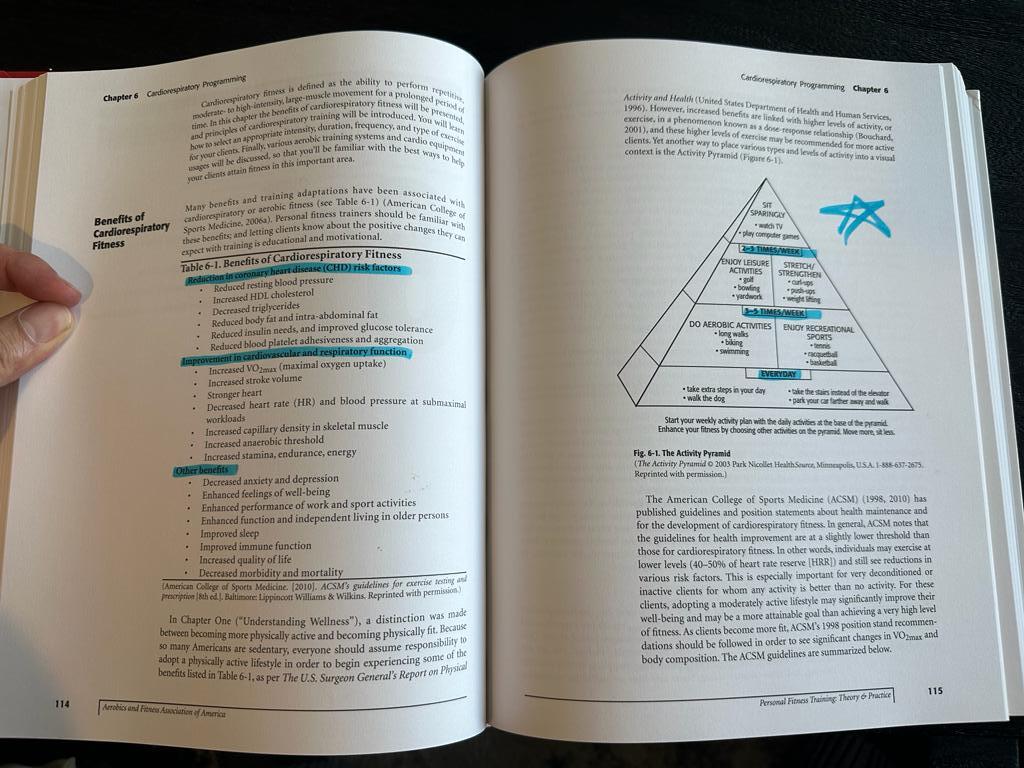
Unlike other organizations which give you a plethora of study resources to help you prepare for the exam, AFAA only has one option.
The one AFAA course gives you 14 online video lectures, a downloadable study guide, and sample multiple-choice test questions.
Of course, you also get the textbook which you can use to create your own notes and study materials.
I recommend reading through the textbook twice and then relying on the AFAA study guide, studying a little bit every day over a few months to let the information sink in.
Taking at least one or two AFAA personal trainer practice exams before the test also helps to let you know you are ready for the certification exam.
AFAA Certification requirements
AFAA asks for the standard personal trainer requirements you’ll need to meet for most CPT programs:
- Candidates must be at least 18 years old
- Candidates must hold a high school diploma or equivalent
- Candidates must hold current first responder certificates (First Aid, current CPR, AED certification)
AFAA CPT salary
In 2021, the median wage for personal trainers was $40,700 per year for personal fitness trainers. Given that the fitness industry is one of the fastest growing economic sectors in the US economy, this number is likely to increase.
I notice that most full-time trainers can make around $40,000 in year one with solid work ethics. After a few years, you can earn much more once you build up your client roster and increase prices.
I recommend seeking fitness professionals who are making the kind of income you want to earn and finding a good mentor.
Everyone has a different path to success but the one surefire method toward greatness is to be surrounded by a community of successful individuals.
Taking the final AFAA Personal Training exam
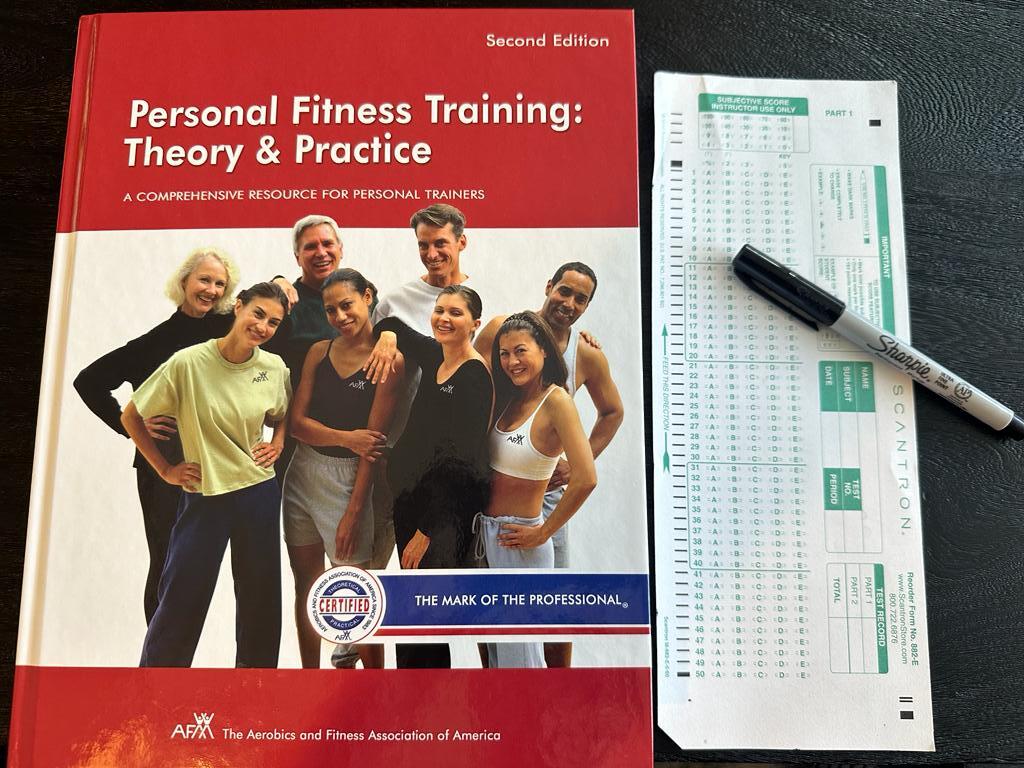
Unlike most other certification exam questions, the AFAA includes a practical experience section in its exam. The majority of other certifications only offer multiple-choice sections.
To write and prepare for your AFAA Personal Trainer exam, you use your enrollment ID to register and schedule your exam.
Unlike ACSM, NASM, and ACE exams, which consist of 150 questions, the AFAA exam is just 120 multiple choice questions, with 20 of these being unscored questions.
These unscored questions don’t earn points toward your final exam score. They exist for research purposes and will likely be used in future tests.
You won’t be able to distinguish these from the main scored questions, so your only option is to answer as many questions as possible.
The exam can be done through PSI online exams or other options.
You have 120 minutes to complete the AFAA exam, plenty of time, in my experience. Passing requires that you score at least 70%.
Regarding difficulty, AFAA’s pass rate for the PFT course is 62%, according to 2017 statistics.
That means it’s not quite the easiest personal trainer cert out there; however, in my experience, it’s not too challenging to synthesize what’s in the textbook.
AFAA CPT continuing education
Recertification happens every two years for your AFAA PFT cert, similar to most other certifications.
You need to submit continuing education units or CEUs and a nominal recertification fee with your AFAA recertification application.
The credits prove that you have continuously maintained and progressed your level of knowledge and skill in an ever-evolving fitness industry.
CEU methods include gaining other certifications, attending workshops, and subscribing to think tanks, seminars, and conventions with AFAA-approved CEU organizations.
AFAA recertification requirements for the PFT are 15 CEUs, equivalent to 15 hours of continued education.
The recertification fee costs $99.00.
Other AFAA offerings
You can choose from a selection of other great certification programs and AFAA online courses, which are a great way to get some free AFAA CEUS thrown in with a new certification.
AFAA Fitness Certifications:
- AFAA Group Fitness Instructor (AFAA-GFI)
- Indoor Cycling
- AFAA Nutrition Certification (through NASM)
- Sunrise Yoga Specialization
- Tai Chi
AFAA Personal Trainer Certification overall rating
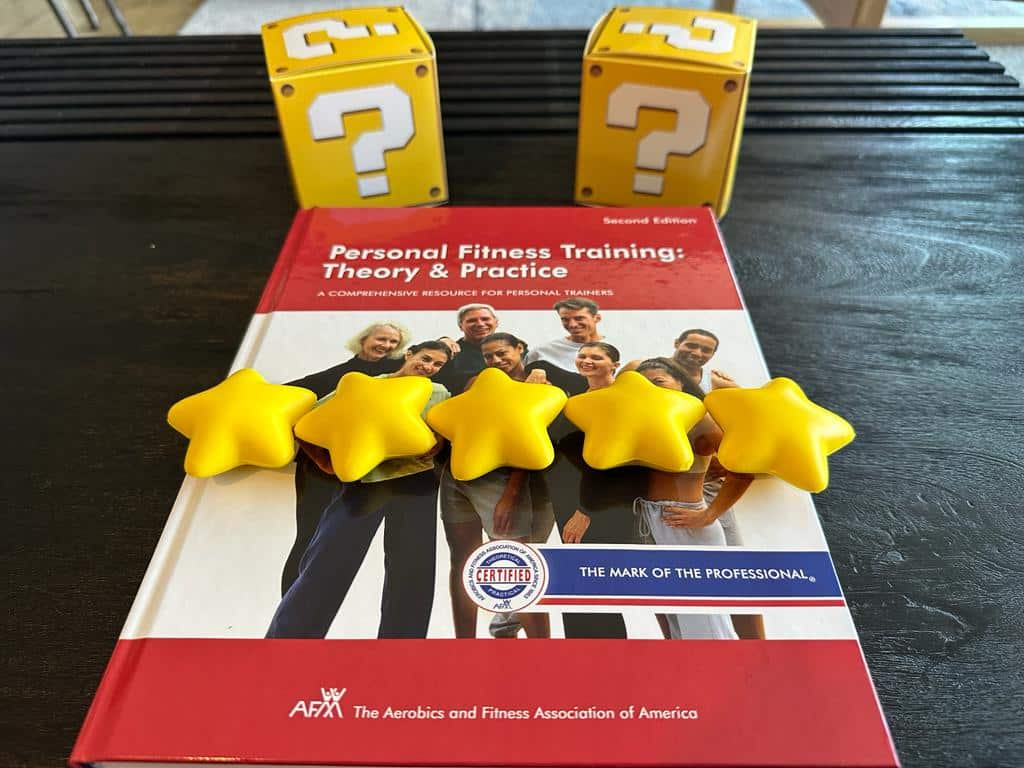
[rank_math_rich_snippet id=”s-d3bed445-b926-452e-ae99-a673787a3368″]
Overall, the AFAA Personal Training Certification gets a 7.5 out of 10.
AFAA has a solid approach to providing a general introduction for fitness professionals wanting to become personal trainers.
They are, however, a lesser-known certifying agency, and their content looks a bit dated.
Learning how to sell personal training, attract and retain clients, draw up personal training contracts, and implement the right marketing ideas needs more coverage than you get from this program.
I feel AFAA is a bit old-school in that regard as I believe at this stage, certification should be teaching you things like social media for personal trainers and putting together a personal training business plan, for example.
If you want a personal training certification, AFAA is one of the most thorough trainer options. Still, I wouldn’t recommend it over alternatives like ISSA, ACE, or NASM due to the lack of study resources and the older textbook.
For instance, if you compare AFAA vs. NASM, NASM has much better study resources. So does ISSA or ACE, which both have excellent online courses.
The only way AFAA triumphs over the above organizations is through the low price, which may be a selling point for you (although currently, the ACE CPT is on sale for only $489 with the textbook, so that’s the one I’d choose based on price).
AFAA CPT FAQs
What is AFAA Certification?
Since then, AFAA has been acquired by NASM and now provides the same high-quality credentials with the added support and resources of one of the biggest names in fitness education.
What is the pass rate for the AFAA exam?
This makes it a relatively difficult exam to pass, so use careful preparation to cut.
How long is an AFAA certification valid for?
Recertification requires the submission of CEUs as well as a small recertification fee.
What is the AFAA test retake policy?
If you happen to fail a second time, you are eligible for a retest 30 days after that.

 Have a question?
Have a question? 


Very disappointed in this company. Professional by day and was starting to teach kickboxing in evening and wanted to get certified. Unfortunately, got busy with new job and COVID hit and time got away – so after spending a ton of money on the program, when it got close to my year, I was told I could only extend for another $150, and the exam I paid for had expired as well. Wow. We are in a Pandemic. I called and they were not flexible. Maybe this is the way it is but I think an exception can be made. Would never use this source again!!
I’m sorry that you had such a bad experience. They should definitely extend a longer timeframe especially due to people’s specific situations dealing with covid. I’m sorry you had to go through this horrible experience.
AFAA stopped including the free CEU course with the Recertify For Life option. When I renewed in December, the free course was still listed as a benefit. When I went to redeem a course in January, it was no longer available.
Yes it seems like they have removed this option. It’s too bad, a lot of people really like this.
I took my AFAA test today and failed and I am extremely frustrated!!! I studied my butt off, studied all of the things I was suppose to, all quizzes at the end of the chapters, mid-term, and practice test all in which I passed. I found the exam at the testing facility to not be anything like the practice ones, a few similar questions but a lot of grey areas. I am very disappointed and I do not know what to study now for my re-take.
Hello Jillian,
I’m so sorry that you did not pass your Exam for the athletics and fitness Association of America. Just like in the exam from NASM (same company) The exam can be very confusing and just like you said have a lot of gray areas. Unfortunately I do not have a free study guide or practice exam on my website for the AFAA (yet!). I do recommend using space repetition flashcards in order to study some of the more difficult topics. Try to focus on the chapters that were giving you the most difficulty as well. I believe that you will come back stronger than ever and actually retain the information for longer because of the setbacks. You got this!
Hi Tyler! Great website! I’ve been addicted to it the last few weeks. Quick question for you… Do the NASM and ACE certs have any emphasis on group fitness? My goal is to be a group fitness instructor and wondering if I should start with AFAA or go right to NASM (which I’m leaning towards). Any insight would be greatly appreciated!
Hello Aubrey,
The national Academy of sports medicine is a general personal training certification and does not really touch on group exercise fitness. If being a group fitness instructor is your primary goal, you should definitely consider getting a group exercise certification. I like the ones from ACE and NASM. I think it is a great complementary certification to any general CPT. That being said, I think that getting a general personal training certification first is extremely important. I hope this helps
Thank you, Tyler for this blog. Unique quiz by the way!
Hello, thanks for stopping by and leaving a kind comment. I am glad that you enjoyed my quiz!
most afaa folks are quite rude and seem annoyed by answering phone calls . Also I have completed their courses a month ago and renew my cpr , now they need 30 days just to review my application .
That’s a very good point of view I have not really had too much experience working with them on the phone. Maybe try emailing them and they can get back to you. Everything is so chaotic right now that you might just need to give them a day or two to respond.